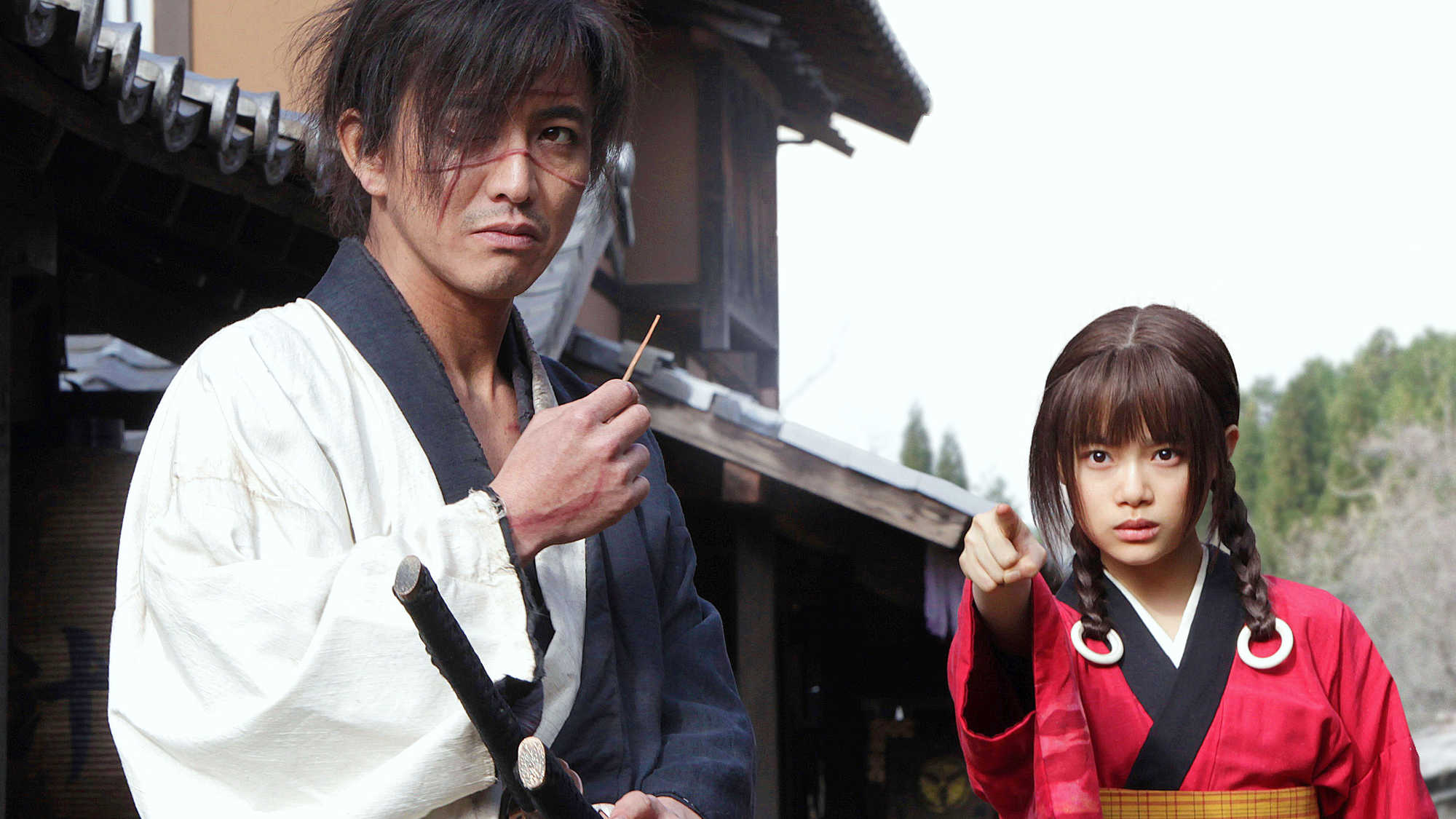Blade of the Immortal finds Takashi Miike in maximalist mode, using Western money (care of Jeremy Thomas's Recorded Picture Company) to recruit - and kill off - what seems like every last Japanese extra standing, and building a samurai opus that wouldn't altogether embarrass itself if offered up in the same conversational breath as Kurosawa. In a typically Miikean twist, our master swordsman hero - Takuya Kimura's Manji - is literally indomitable, the result of an encounter with a sorceress who fills his body with magic bloodworms that helpfully reattach any limbs or extremities lopped off in the heat of battle, and thereby bestow some form of eternal life upon him. (He's a little like Wesley Snipes' undead avenger Blade then, yes, but also subject to body spasms that recall Shinya Tsukamoto's Tetsuo - and you should be warned, he's also not averse to lopping off his own extremities, safe in the knowledge these will eventually scuttle back to him.) With the narrative and existential problem of mortality taken care of, Miike is freed up to rewrite the code of the samurai movie and refocus his efforts on giving his audience the most carnage for their buck (or yen). This warrior cannot be stopped; his destination really is less important than his journey.
Would it be too much to discern some parallel between our hero and the apparently tireless, prolific filmmaker? When we rejoin Manji after the prologue, with immortality having long taken effect, he's become a jaded husk - someone who's seen too much action for his own good, including the slaying of his mentally frail sister. His arc necessitates finding a reason to live again, something he gains upon becoming a protector to young Rin (Hana Sugisaki), an aspirant samurai introduced being berated by her parents for not being ladylike; within moments, she finds herself orphaned by the tyrannical Anotsu (Sota Fukushi), a glib ponce who's been going around town forcing everyone to put down their big blades and take up fencing instead. (In the autobiographical reading of the movie, Anotsu represents those tastemakers who would insist enfants terribles such as Miike curb their wilder impulses and make nice.) While we wait for this big boss to show himself anew, Miike shuttles on character players to square off against our dashing heroes: a speedy sod who undoes himself by framing his fight with Manji as a series of lessons, a morose-seeming monk who has his own reasons for seeking the samurai out, a kimono-clad babe who leads Manji into a backalley and proceeds to do a lot of damage with a pivoted pike.
Drawn from Hiroaki Samura's manga series, it's episodic - as many of the most enduring samurai narratives, from the Lone Wolf and Cub series to Tarantino's Kill Bill, have been - but Miike makes each episode varied, vivid and visceral; they demand a different approach from hero and filmmaker alike. With the characters set in this holding pattern for some of the first and most of the second hour, a lot seems to be riding on the final showdown. Here, thankfully, the film rather thunderously delivers, with a tremendous dust-up that sees key players hack and slash their way through a crowd of pawns and patsies, and heads - not unlike Once Upon a Time in the West - towards the ushering-in of a new era: a grand setpiece for which Miike's years of restlessness have surely served as their own form of training. "Even killing should be done right!," yells Rin before the start of this spectacle, a creed to which Miike wholeheartedly subscribes, and at its sharpest, this Blade forms an effortless reminder of the sound and fury we've always responded to in our better genre movies. The Foleyed-up swoosh of bodies in motion, and swords slicing through the air to catch flesh: dubious though they might be, these pleasures remain very much immortal.
Blade of the Immortal is available to rent via Amazon Prime and the BFI.

No comments:
Post a Comment